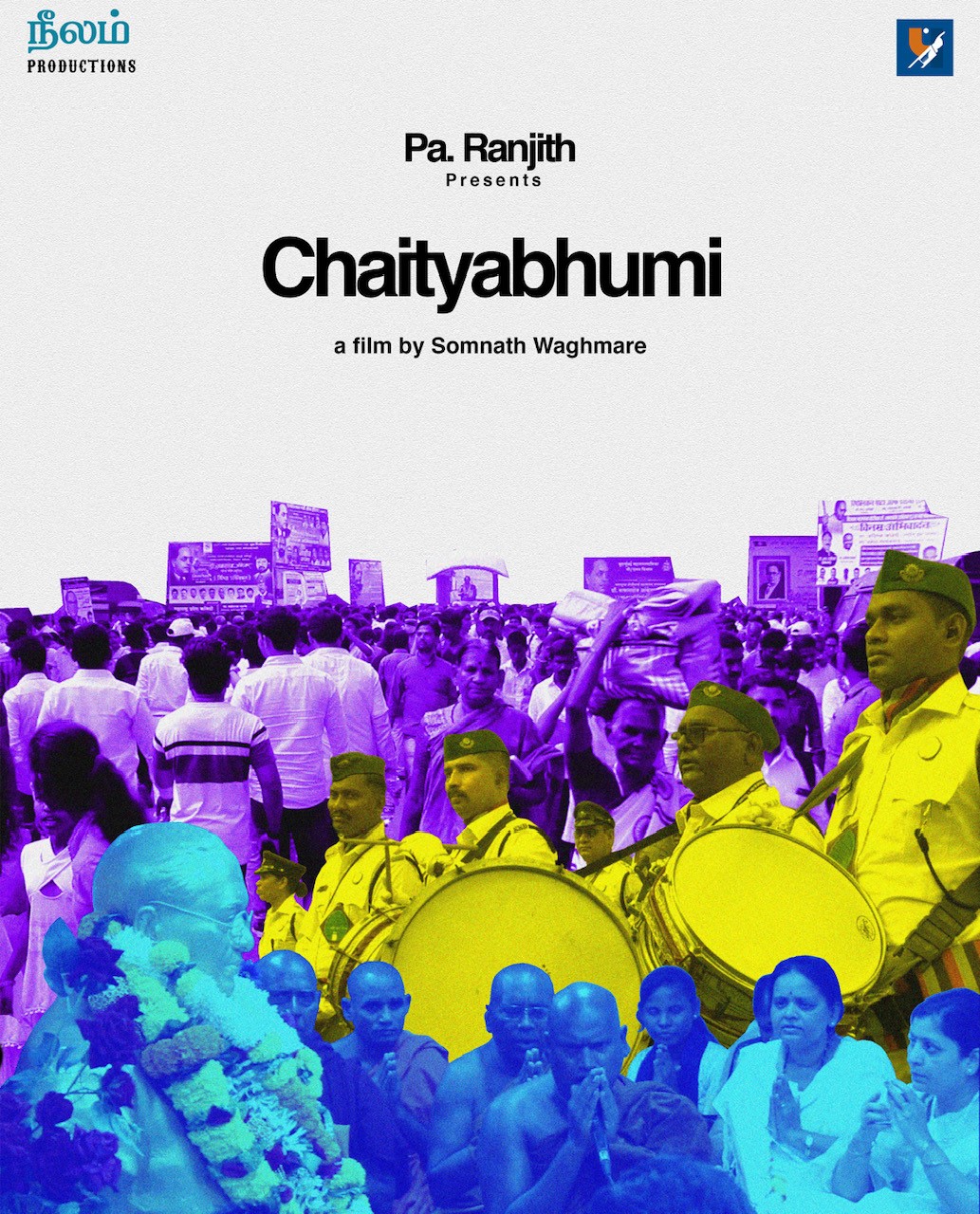
James Room, Barnard Hall
Institute for Comparative Literature and Society
The South Asia Institute
Department of History at Columbia University
Office of the Dean of Humanities
This event is part of the Ambedkar Initiative at ICLS.
Join us for a public viewing, film screening, and reception with artist Smita Rajmane and filmmaker Somnath Waghmare.
Date: Sunday, December 3, 2023 12:00pm-4:00pm, film screening from 4:00pm-5:00pm
Location: Milstein Hall, Barnard College
Registration required for non-Columbia University or Barnard affiliates. Please bring ID.
To view information about the Digital Bookmobile event, please visit our page for that event.
Following the exhibition, at 4pm in the James Room, Barnard Hall, we will host the US premiere of the documentary CHAITYABHUMI with filmmaker Somnath Waghmare. First-come, first-seated.
Mumbai or Bombay as it is known today, has always been a city of dreams, drawing millions of migrants from all corners of India. It is a city of hope, where people come seeking a better life. However, Mumbai also has a long history of social struggle, reflecting the challenges and inequalities faced by its diverse inhabitants. This bustling metropolis is not only a melting pot of cultures but also the center of the Hindi film industry, Bollywood. For the Dalit movement in India, one of the most significant places is Chaityabhumi in Mumbai. This holy site holds great importance, as it is where Dr. Babasaheb Ambedkar’s last rites were performed after his passing on December 6, 1956. Dr. Ambedkar, often referred to as the father of the Indian Constitution, dedicated his life to fighting against the chains of caste oppression. He was a guiding light for the oppressed, dismantling discriminatory barriers and empowering them to reclaim their rightful place in society.
The Dalits, also known as the Untouchables, find themselves trapped within an unjust social order. Caste, a deeply ingrained system, categorizes society into hierarchical divisions based on birth. Dalits are relegated to the lowest rung, labelled as impure and untouchable. They face relentless discrimination, enduring daily humiliation, and the denial of basic human rights. This cycle of oppression has persisted for centuries and continues to this day. Mahaparinirvan Din, the day of Dr. Ambedkar’s departure, holds immense significance for the Dalit community. Every year from December 1 to December 6, millions of Dalit-Bahujans from across the nation make a pilgrimage to Chaityabhumi in Mumbai. They stay close by, at a sprawling public park called Shivaji Park and spend close to a week in the city. Most of them are landless Dalit laborers, who travel in passenger trains with just a pair of clothes and dry food packets. Many Nepalese and Sri Lankans visit Chaityabhumi. This week-long commemoration is a heartfelt tribute to their revolutionary leader, a time to honor his memory and the profound impact he has had on their lives. It is a powerful symbol of their ongoing struggle for justice and equality, a day when their hearts beat as one, united in their unwavering resolve to carry forward Babasaheb’s legacy.
During this time, the Ambedkar memorial Chaityabhumi in Mumbai’s Shivaji Park transforms into a vibrant hub of activity. It becomes a cultural festival, where books are sold and purchased, music fills the air, and performances take place. However, amidst the reverence and celebration, there is also a sense of disdain from the city’s media and elite. This documentary film seeks to illuminate the history and cultural politics behind the commemoration of December 6 at Chaityabhumi, shedding light on its significance in contemporary India. The film delves into the tensions that arise from the intersection of caste and the public sphere in Mumbai. It explores how this peaceful event is viewed and received by different segments of society, bringing to the forefront the complexities of caste dynamics and the struggles faced by the oppressed in their quest for social justice. Through interviews, personal stories, music, and evocative visuals.
This documentary film will bring to light the history and cultural politics of how Dalit mass commemorate December 6 at Chaityabhumi and its relevance in contemporary India, exploring the caste and public space politics of Mumbai city.







